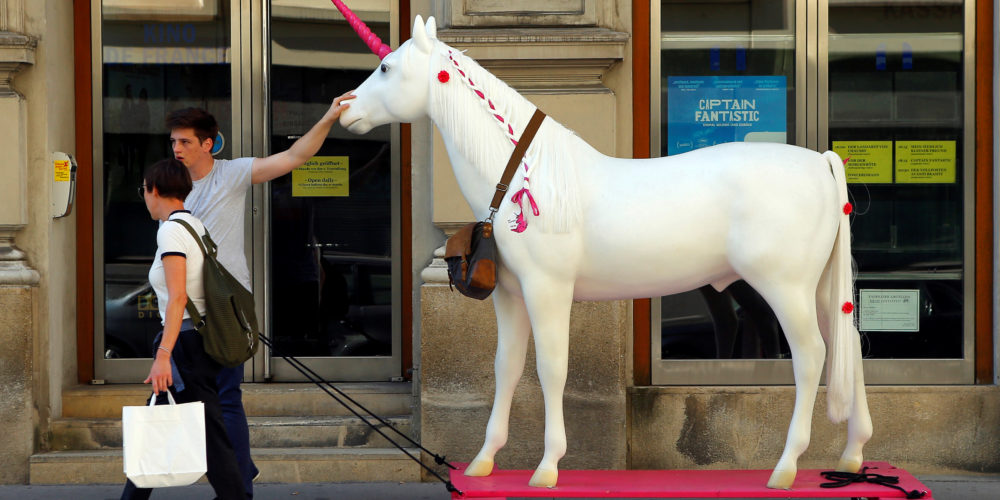BY ROBERT CYRAN
Uber Technologies’ lackluster stock-market debut is a warning for other tech unicorns. The ride-sharing service’s shares opened below the initial public offering price – valuing the company at around $70 billion, based on outstanding shares, soon after they started trading on Friday. The lack of positive excitement for the biggest listing of a U.S. technology company since Facebook in 2012 suggests investors are becoming more choosy.
Even the IPO price set on Thursday was a disappointment compared to some expectations. At $45 per share, it valued Uber at around $75 billion, or more than $82 billion counting dilution from outstanding options and such. Like many other recent tech IPOs – but unlike Facebook, which was profitable – Uber relies on investors’ belief that it will one day grow enough to escape its current ocean of red ink. The firm lost approximately $1 billion in the first quarter.
The listing gives Uber another roughly $8 billion to fund investment in its expansion, adding to the nearly $25 billion raised in 23 private funding rounds, according to Crunchbase. The company’s losses may have played on some investors’ minds, along with the poor performance of smaller rival Lyft whose shares are down around a quarter since its IPO at the end of March.
To be fair stock markets had a rocky week thanks to an escalating trade war between China and America. And Uber’s shares traded back towards the IPO price later in the day on Friday. But when investors feel the need for increased safety, it’s surely harder to find buyers for the stock of a cash-burning company with a history of run-ins with regulators and employees.
Facebook’s stock didn’t do well in the weeks after its own listing. But given the absence of a clear path to profit, Uber’s debut will raise suspicions that the public is being used as a convenient exit for earlier investors in private funding rounds. Profitable firms may not have to worry too much about finding a market for their stock. Firms that need constant capital infusions to grow, such as office-sharing IPO candidate WeWork, could receive a chillier reception.
First published May 10, 2019
(Image: REUTERS/Heinz-Peter Bader)
